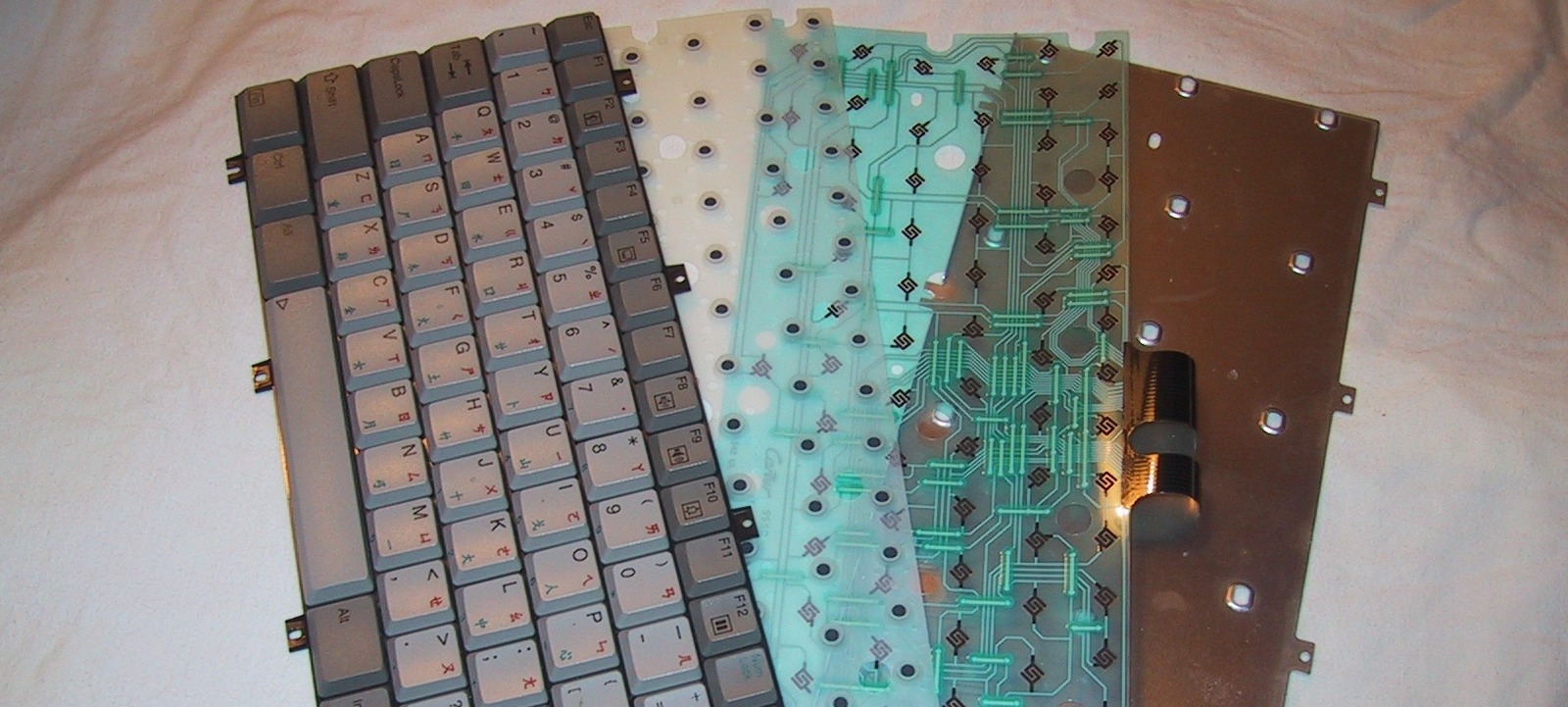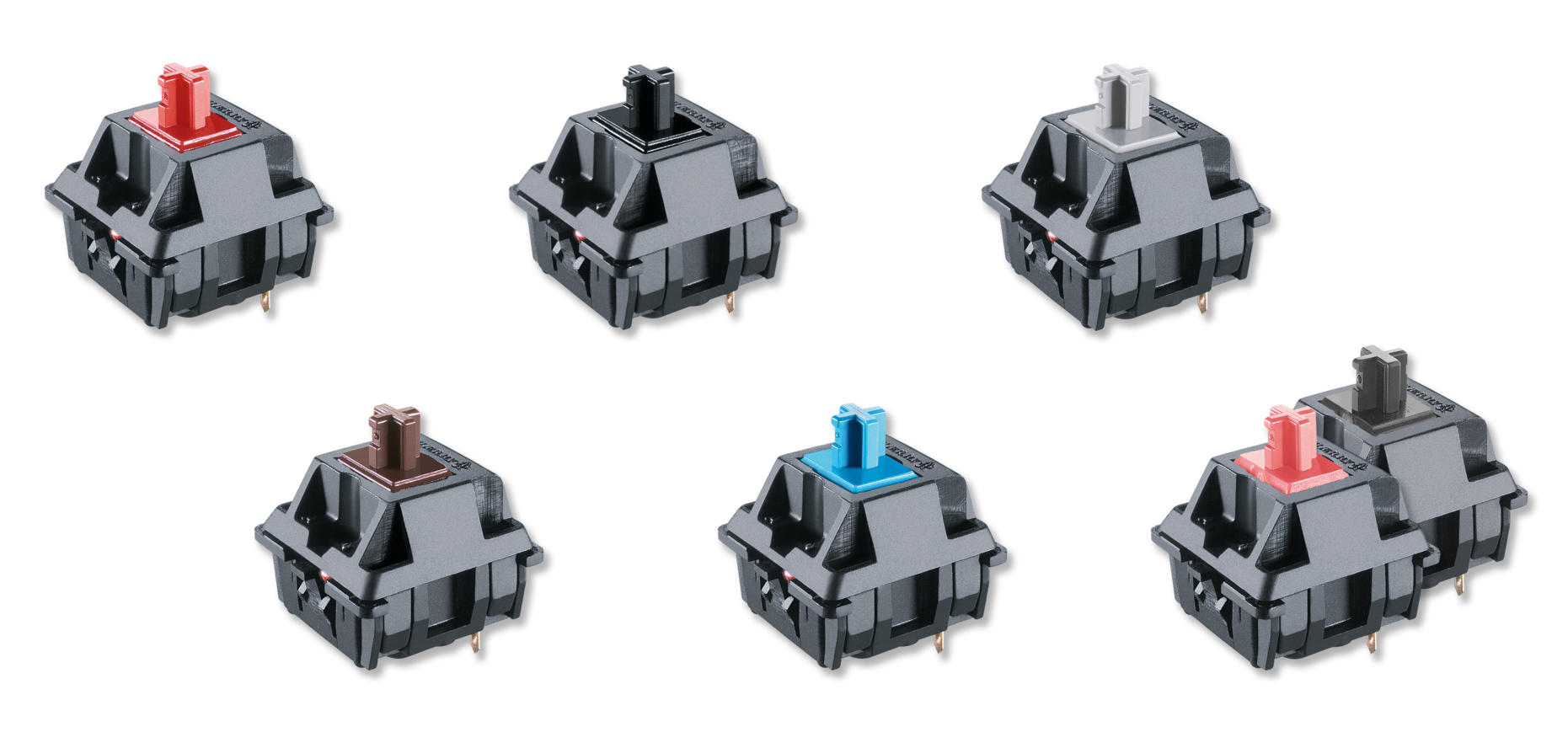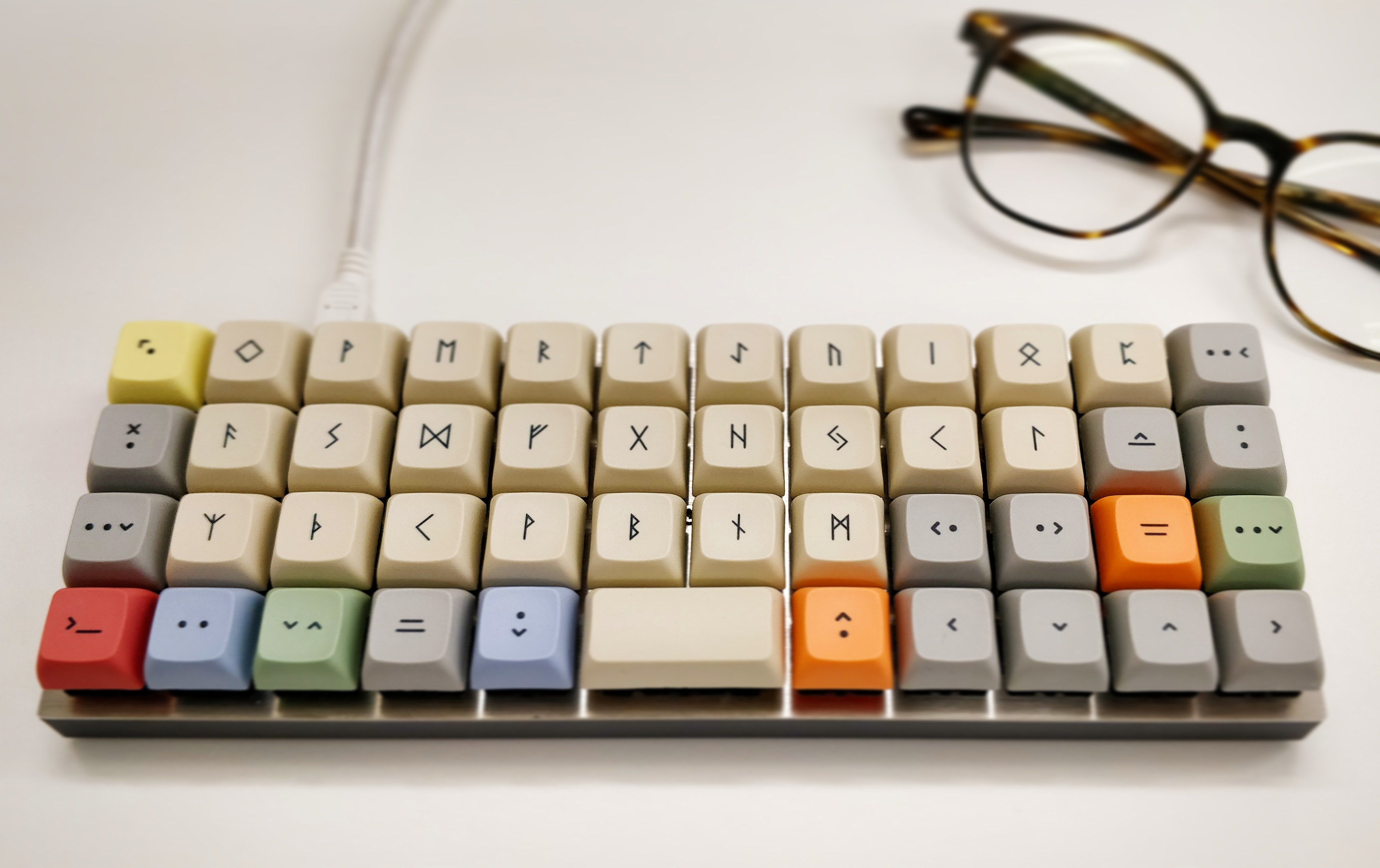
Let's Talk Keyboards
Membrane vs Mechanical. Which is the right one for you?
For all of the time that folk spend in front of the computer whether it be professional, recreational or both; the keyboard, as important as it is, is often overlooked.
There are two different types of keyboards: membrane and mechanical. Almost everybody will be familiar with the former. These are the stock keyboards that new computers come shipped with or the keyboards that you buy probably from your local tech equipment shop. Mechanical keyboards on the other-hand offer an entirely different typing experience and the chances are you don't know much about them. This post will go into the specifics of both types of keyboards and the pros and cons of each. Don't you think it's about time you learned about the object sitting under your fingers for most of your day?
Membrane Keyboards
Membrane keyboards were introduced in the early 90's as a cheaper and more mass-producable version of earlier mechanical keyboards such as IBM’s very distinctive 'Model M' in the 1980's. Chances are you are sitting in front of a membrane keyboard right now.
How they work?
They are comprised of several layers starting with the top membrane layer. When the key is pressed it moves through a layer convered in holes (one for each key). The pressing-action causes these layers to make contact with the bottom membrane layer to let the keyboard controller know that a certain key has been pressed.
The Good
-
They are cheap. These keyboards are extremely popular due to their low price tag. They are cheap to manufacture, making them affordable and attractive to the masses.
-
Whisper quiet. OK, maybe not that quiet, but you can easily type without annoying your co-worker, waking up your house, or triggering sensitive early morning/late night hearing. All membrane keyboards vary in noise, but they tend to be lower down the decibel scale.
-
Portability. Membrane keyboards are normally very lightweight. The layers comprising the keyboard are made from PCB and plastics, making them easy to transport. Granted that the normal computer user isn't carrying their keyboard around with them all of the time but it means that it isn't uncomfortable if the user wants to type with it on their lap.
The Bad
-
Can require more effort to type. This is less obvious if you have only ever used a membrane keyboard. Due to the 'trigger point' of a keypress being on the bottom layer, this requires you to press the key through all of the layers, otherwise known as 'bottoming out'. Over time this can cause stress on your hands and wrists due to the constant impact.
-
Hard to fix. Due to the many layers and (by design) the connectivity throughout the whole board, some find that a keypress activates some surrounding keys. This is difficult to fix unless you know your way around the different membrane layers.
-
Hard to clean. Due to the layered design and difficult-to-remove keycaps it makes routine cleaning an annoying task. I've certainly snapped quite a few keys attempting to remove them.
-
Less satisfying typing experience. This sounds like personal preference but the general consensus (with a dash of bias) seems to be that typing on a mechanical keyboard feels better. I have no stats to back up this claim...
Mechanical Keyboards
Mechanical keyboards are generally higher quality than membrane keyboards and comprises of two main layers: The switch and the PCB. Arguably the most important part of the Mechanical Keyboard to the user is the spring-activated switch, varying wildly in feel, touch, and sound. Before delving into some of the pros and cons of Mechanical Keyboards like I did with membrane, I will quickly go into some of the different parts, as they require a bit more of an explanation. Besides, my hidden motive of this post is to educate you about mechanical keyboards in the hope of converting you.
Switches
The switch is the personality of the keyboard. The feel of these switches can be placed in one of two categories: tactile (bumpy) or linear (non-bumpy). Both types can require a different amount of force to press and are generally rather satisfying to use. Popularised by the maker Cherry, they are differentiated by colour; most commonly: blue, red, brown, black and clear.
Customisation
It isn't just the inside of the keyboard that can be customised, the outside can also tailored to your specification too! With the rising popularity of mechanical keyboards, various manufacturers and community enthusiasts have taken it upon themselves to produce keyboard cases in materials ranging from glass, to wood, metal, and even concrete! Keycaps are available in what feels like every RGB colour, and PCB boards that allow for backlit keys in colour themes and patterns which can even be controlled from your mobile phone.
Types/sizes
Following on from the customisation theme, mechanical keyboards come in a vast array of sizes allowing you to select a size that caters to your exact need. The 'common' available sizes in descending order are as as follows:
- 100% (102 keys)
- 75% also known as tenkeyless (TKL) (~84 keys)
- 65% (68 keys)
- 60% (61 keys)
- 40% (40 keys)
"Whoah whoah whoah, 40%?! Where are the rest of the keys? How do you do anything useful?!" - Layers. They're your friend and allow you to do wonderful things by pressing multiple keys at once. Think of it like using the shift key and pressing a letter to type in upper-case, except instead of typing an upper-case character you're pressing a different key to activate an arrow key.
A little creativity is required to be able to cope with the smaller mechanical keyboard sizes and although slightly unconventional, can be a lot of fun. They have their own advantages which are touched on below, and are used by many as their 'daily driver'.
Why are they good?
-
The Size. Unlike membrane keyboards which are typically 100% (104-key), mechanical keyboards can go as small as 30% (33-key). This can be great if you are particularly pressed for space on your desk, if you travel a lot and wish to use your keyboard wherever you go, and above all else the smaller keyboards have been known to help injury such as RSI.
RSI prevention was the main reason why I initially got into mechanical keyboards. Typing on a smaller keyboard means that your hand will have to travel less distance per day, which can already be in the many miles per day depending on your occupation for instance. Additionally, many mechanical keyboard switches don't require a lot of effort to type on/actuate a keypress. With this, you aren't required to 'bottom out'/fully press the key to activate it unlike most membrane keyboards. Overtime this will cause less strain on your fingers and wrists.
-
Durablilty. Mechanical keyboards tend to be a lot more durable due to the use of modular switches. These switches tend to be a lot more resilliant than the key mechanism on membrane keyboards due to them being almost completely separate, therefore minimising the impact on surrounding keys.
-
Programability. This is not true for all mechanical keyboards, but certainy if you want to be able to create your own macros or key-mappings (easily without additional software), then you'll more than likely need a mechanical keyboard to be able to do this.
-
Minimal effort. This was mentioned above, but I thought it deserved its own special mention. Due to how the switch works, you aren't required to press/actuate the key the entire way to type. This means that you can learn to lightly press the keys without 'bottoming out' like on membrane keyboards.
-
Customisability. Not necessarily an important pro of owning a mechanical keyboard, but it certainly is nice to be able to personalise the object that sits in front of you for many hours per day!
-
Easier to clean. I'll spare you a google image link, but if you're really curious, search 'dirty keyboard'. Unless you have a keyboard cover, it's insanely easy for crumbs, dust, and general crap to call in between the keys. Membrane keyboards (due to it being harder to remove the various layers) are difficult to clean. Mechanical keyboards on the other hand can be taken apart right down to the PCB mostly with minimal effort, cleaned, and put back together again.
-
Talking point/networking prop. As bizarre as it sounds, the amount of conversations I've had with old and new contacts due to them seeing or hearing the keyboard is astounding! It's definitely a great talking piece that will give people a reason to start a conversation. Who know's where that may lead?
Why are they bad?
-
They sure can be noisy. The feedback that the switch gives as a result of actuation can create a loud clicky noise that can irritate coworkers or be annoying to those with particularly sensitive hearing. This is not true for all switches like MX Reds, but some switches such as MX Blues can be LOUD.
-
Expensive. Due to the overall build quality and the enhanced experience that it gives you as opposed to a membrane keyboard, they can come with a hefty price tag.
-
Tend to be heavier. This isn't as much of an issue but I know a lot of software engineers (mainly consultants) that travel between offices a lot. The increase in weight for mechanical keybaords means that they are normally less easy to transport.
Should you make the... Switch? *Ba-Dum-Tss*
Yes.
*Roll Credits*...
I'd love to end it there, as I'm sure it's clear by this point that I'm passionate about mechanical keyboards, but I'll take a step back for a second. If you're a lighter user of a computer then membrane might be better. Additionally if you're on a budget or work in a library or somewhere else stereotypically or characteristically quiet, then membrane again might be better.
However, if you're more of a power-user, a writer, coder, care about typing speed, or do care about experience, then i'd urge you to try out a mechanical keyboard. You can wander into most dedicated computer hardware shops and request a spin on one. After-all, as previously explained, the experience is heavily customisable! You'll probably want to see what works well for you in terms of size and switch type. If you can't find a good range of switches to test, a switch tester kit can be well worth it.
They ultimately give you an appreciation of typing and drive you to become a better more efficient typist. Combating serious afflictions such as RSI is one thing, but actively improving your skills and providing enjoyment at the same time means that this could be a worthwhile investment to make.








